In the UK, a stroke will occur every five minutes equalling over 100,000 strokes every single year. A person will at the very least need temporary care during the initial 30 day period when recovering from a stroke. And then some level of continual care may be required if you suffered a stroke with lasting effects on the body.
There are lots of options for care, including nursing homes and care homes, but stroke aftercare can also be provided in the home. In-home care can help families regain stability and quality of life after a stroke, all within the familiar surroundings of the family home.
How Live-in Care Helps
In-home care does not have to be round the clock if that is not what you feel is needed. A home care service could just take the strain off your main caring duties, helping with some personal care, house cleaning, grocery shopping and similar tasks. However, if your loved one has significant medical care needs, then live-in care can also provide professional care in the home 24/7.
With a reputable live-in care company, the carers provided will be experienced in working with stroke patients within the home. Carers will have experience – having worked with people who have suffered with all different kinds of stroke, who have been affected in all different ways. Home care or live-in care services are always unique to the person receiving them, and are adapted to suit every client’s needs.
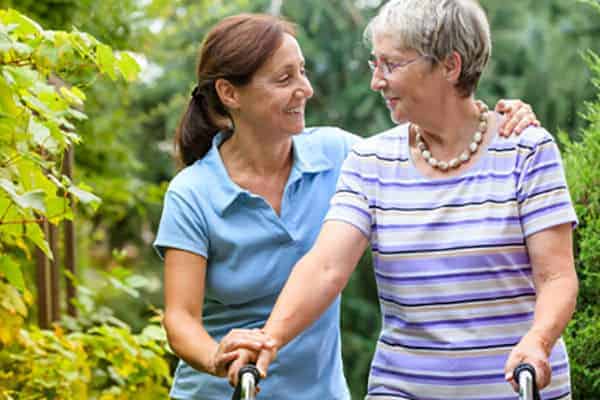
A Nurse-Led Care Plan For Stroke Victims In Their Very Own Home
Home care services are based around the needs of your loved one, and delivered in the place that means the most to them – their own home. What is so beneficial about choosing live-in care is that your care specialist will work with you and your loved one to create a totally unique and dedicated care plan that works around your physical needs, emotional needs and lifestyle.
Stroke Victims Need Familiar Surroundings
With home care for those who have suffered a stroke, they are able to recover and recuperate in familiar surroundings they are comfortable in. This can aid in the recovery process making it quicker, and it is also an excellent base for rehabilitation. Stroke victims often need to go through therapy to learn to walk, or speak again and the best place for this therapy is at home. If any physical restrictions are going to be permanent, your carer can help you work around them in the home and recommend devices and adaptations to make the home more suitable to your new needs.
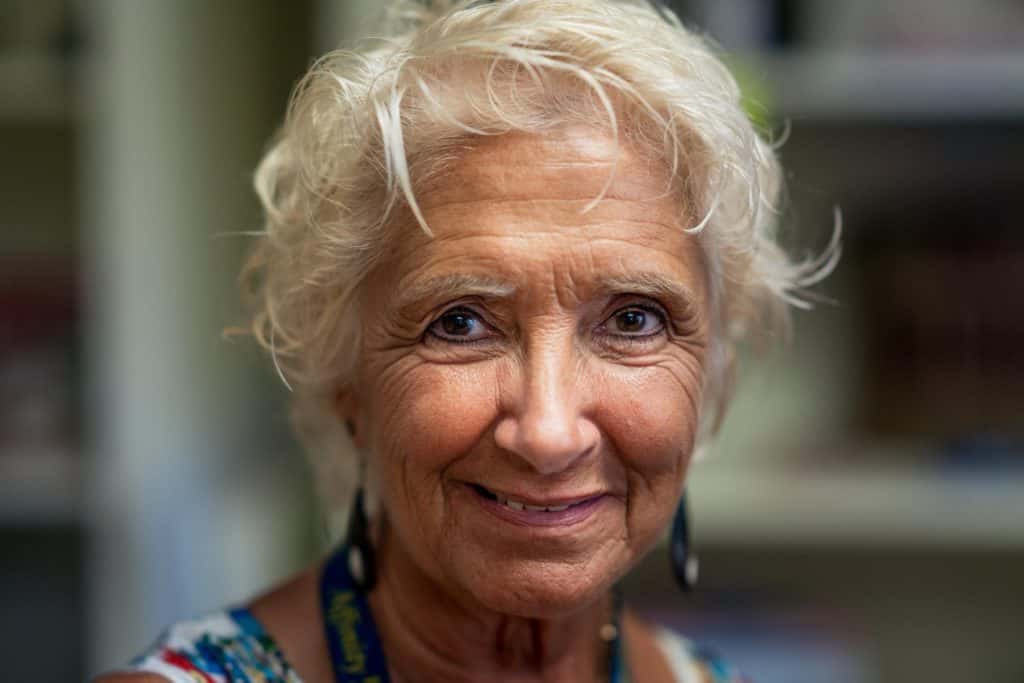
How Home Care Can Help When Recovering From A Stroke
There are roughly 100,000 strokes every year in the UK and the most rapid recovery occurs in the first 3 to 4 months, although recovery can continue for up to two years. The aftercare needed when you have had a stroke does not need to happen away from your own home. In fact, home care is a fantastic option for families who want their loved one to recover in familiar surroundings and the comfort of home.
Strokes can be life changing for both the person affected, and their family but with professional care families all over the UK are receiving the unique support they so desperately need, all completely within the home. Care can involve regular visits at agreed times, or it can be 24/7 where the carer lives in your home – there are services tailored to your needs available from reputable care agencies.
Carers With Experience And A Passion For Post-Stroke Care
The best care companies provide experienced carers who have worked with clients affected by all different kinds of strokes. Those carers are not only experienced in working with clients who have had a stroke, but they are passionate about providing the best possible elderly care to help with rehabilitation. You should expect their services to be completely tailor-made to your needs, based completely around providing expert care in your home.
The Importance Of Stroke Recovery At Home
When it comes to stroke recovery, most people would prefer to recover in their own home instead of a residential care home or nursing home. It is also thought that recovering from a stroke is better in familiar surroundings. The home is a really good base for relearning skills and for getting used to and working around changes in physical ability. Your carer will work with your GP, your family, health visitors and any other healthcare professionals to ensure they are assisting in every way possible with your stroke recovery and rehabilitation. At home, continuity of carer is also achieved, so you will have someone supporting you that really gets to know you well.
Stroke Care At Home: Offering A Wide Range of Services
Carers are able to offer you a wide range of services for those recovering from a stroke in their home. Not only will you receive help with personal tasks, mobility tasks as well as help with medication and physiotherapy, a carer can also take care of your nutritional needs and help with things like cleaning, pet care and errands.
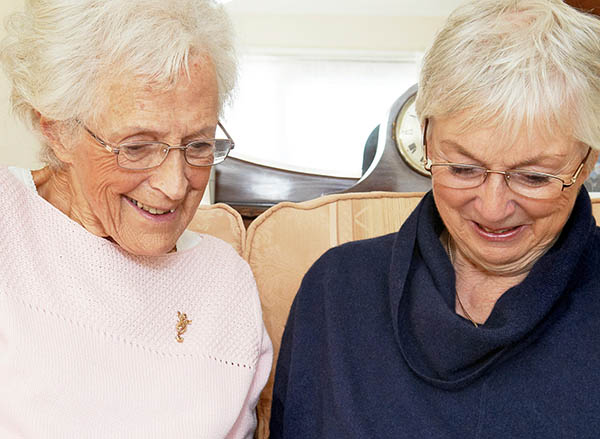
Caring for a Loved One Who Is Recovering From a Stroke
Caring for a loved one who is recovering from a stroke can be hard both physically and emotionally; it is not usually something we consciously choose but more a case of necessity. People provide care because they love a person but that doesn’t make the realities of day-to-day caring any easier.
One common reason that people end up providing care for their loved one, is because their loved one has suffered a stroke. This is more common than you might think, with over 100,000 strokes occurring in the UK every single year.
Strokes tend to happen very quickly and suddenly, but the recovery is a much longer process and caring for a loved one who has had a stroke can have a huge impact on how well they recover.
It is also very important to understand that providing care after a stroke can be extremely challenging in many different ways and you must look after yourself whilst also looking after your friend or family member.
The Initial Impact
The initial impact of a stroke on family and friends can be very difficult because it all happens so suddenly. Loss, fear, grief and confusion are all common emotions to feel when somebody you love has had a stroke. Your loved one might have lost their ability to speak, to walk or they might have complete personality changes. They might not even know who you are. There are also the adjustments that need to occur when your loved one comes back home. As a carer you will have a lot of new worries on your mind such as:
- How to cope in your new role as a carer
- What to do about the financial side of things
- Worrying about how much your loved one will recover, and if they will gain back basic abilities
- Considering your options if your loved one does need round the clock care in the future, will they need professional home care?
- Will the rest of your family continue to provide support?
These worries are totally normal and, you need to know you are not alone in your worries and in how much this has and will impact on you personally.
Initially the most important thing is to focus on recovery as lots can change in the first 30 days, and then after that there is still plenty of potential for further recovery to occur.
Excellent rehabilitation can make such a difference and if you are caring for a loved one at home after they have had a stroke, as long as you look out for yourself as well, you can help them recover as much as possible following this life-changing event.

Getting Support
In order to provide care after a stroke for a loved one, you must take care of your own emotional and physical health as a priority, which means you may need to ask for help. There are various means of support available and usually your first port of call will be the medical team supporting your loved one. Your GP, your social worker, the rehabilitation team and any specialists should all be able to help you with getting the support you need. Stroke.org has excellent advice on where to start when your loved one has just had a stroke.
You may also want to consider looking into care options if the medical team have suggested that the stroke was severe and ongoing support will be needed long term. Although nursing homes could be the right choice for you, don’t forget that care at home is a viable option for many people and it is usually preferable because it means your loved one gets to stay in familiar surroundings.
Look After Yourself So You Can Give The Best Possible Care
Remember there is plenty of support out there for you – you just have to reach out and take it. It is not selfish to want to protect your emotional and physical wellbeing; it could even be what ensures you can give the best possible care to your loved one and aid their recovery long term.
The Next Step
If you do feel your loved one requires additional care following a stroke, there are plenty of places you can go to for advice. Your GP is probably your first port of call, but you can also find advice on websites like stroke.org.uk. It might take some time to get everything into place, but once you have that extra care and support right in your own home, you and your loved one will be able to enjoy the quality of life you both deserve.
There’s no need to turn to residential care homes or nursing homes when you can receive the care you need in the place you love the most. Let us help you find a care provider able to provide the high quality and experienced care in your home that you need.
For impartial guidance and advice about home care or round-the-clock live-in care you can reach us by phone on 0330 311 2906 or by email at hello@liveincarehub.co.uk

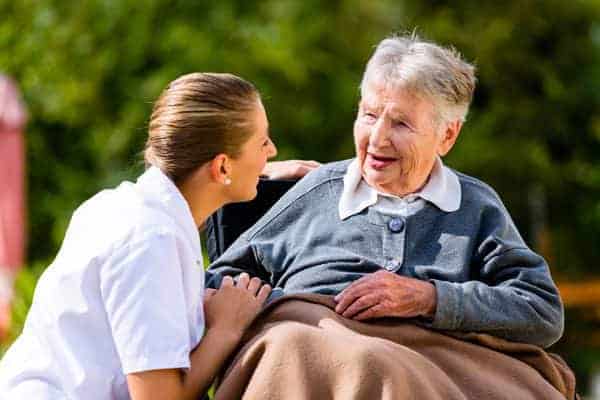

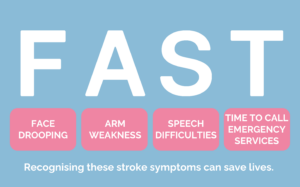

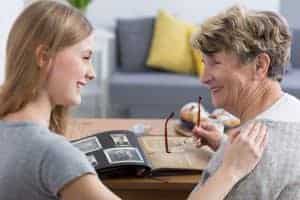
18 Comments. Leave new
A stroke is so cruel. You’re know what you want your body to do but it just doesn’t respond.
A live-in carer definitely helps with lots of the day to day things but it’s important also that they encourage their client to do as much as they are still able to do.
Absolutely Tony – a live in carer provides much more than general day-to-day help – they also offer much needed encouragement to people after a stroke to continue to do what they can but also to learn how to cope in areas where they struggle. It isn’t always possible to recover fully from a stroke but people can learn to manage in a variety of ways and having a professional on hand, every day, makes a tremendous difference.
Anything is possible with the right support!
Care at home enables more continuity too which definitely helps speed up recovery as the person caring gets to know the person really well
Yes that’s such a crucial point that the carer knows and understands their client in a way that simply isn’t possible in a care home where carers work different shifts and, let’s face it, simply don’t have the time to provide anything like as much one-to-one time with people.
What a great blog post – very useful tips!
I agree. I’ve seen how live in care has helped keep someone in their own home and how it’s benefited them not just physically but mentally to.
I’ve seen how it works – a neighbour of mine had a stroke and his wife was exhausted looking after him. A couple of weeks of live-in care while she went to see old friends in Scotland really made all the difference
That’s a good point George that we perhaps don’t highlight enough – just how totally exhausting it is for the spouse or partner to look after their loved one after a stroke. Especially since the partner isn’t generally in the first flush of youth.
Really useful information.
Thanks
Insightful and useful information about recovering from a stroke
Great blog post!
As I’m currently dealing with a relative looking to get home having had a stroke I found this quite thought provoking. I don’t think enough people realise this option even exists.
Really useful information on recovering from a stroke and how care at home can help.
Another great Blog post – thank you
I have seen some amazing improvements with people living with the after affects of a stroke through 121 care at home – improvement at home always happens more quickly
Thank you for this sensitive and understanding article about the impact of a loved one having a stroke. As you point out there are the additional responsibilities of caring for a person. Most of us are woefully prepared for the physical challenges and mental stress of doing this.
Then, there are all the worries about having to deal with things we may never have had to deal with before like the financial side of things.
It’s good to know there are people out there who understand how this all feels.
You’re right Vicky that many of us are quite unprepared for looking after a loved one when they become old or simply too unwell to look after themselves. But remember that there is help available – check with your local authority about whether you are eligible for respite care. You need to take care of yourself too otherwise you will be unable to properly look after your loved one.